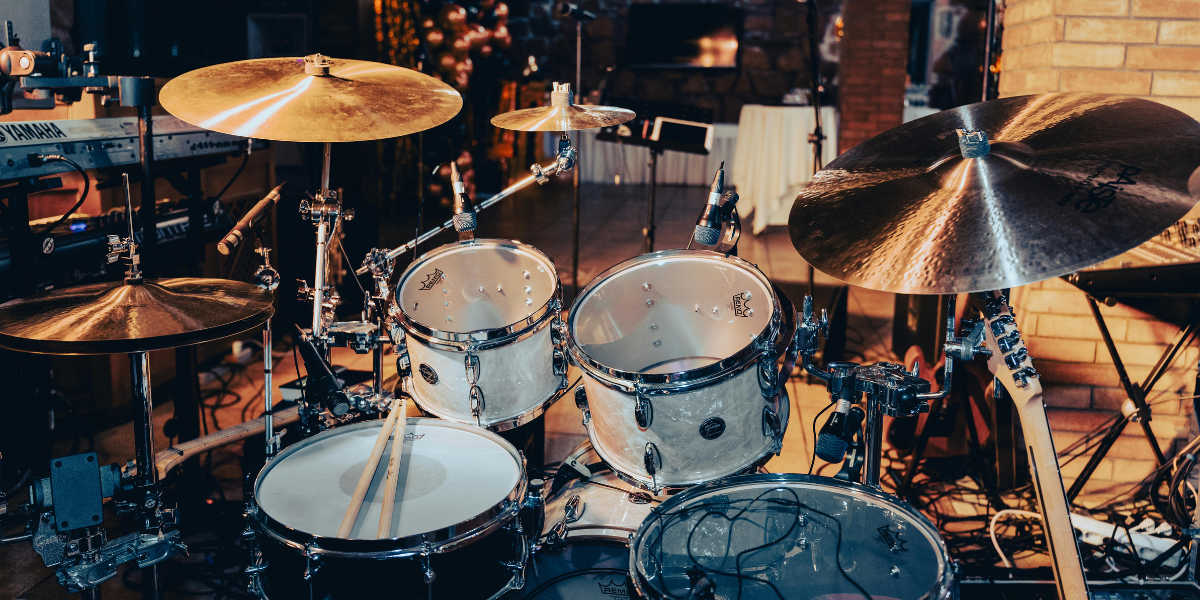Top 5 Reasons Drum Lessons Are Worth Your Time and Money
Are you considering picking up an instrument that’s exciting, expressive, and rewarding? Drum lessons might be exactly what you need. Drumming isn’t just about keeping a beat; it’s a full-body, mind-engaging experience that builds confidence, coordination, and creativity. Whether you’re a beginner or an experienced musician, investing in drum lessons is a decision you won’t regret. Here, we’ll explore the top five reasons why drum lessons are worth your time and money.

1. Boost Cognitive Skills and Brain Development
One of the most compelling reasons to start drum lessons is the cognitive benefits they offer. Playing the drums requires multitasking: your hands and feet often perform independent rhythms simultaneously. This trains the brain to process multiple streams of information at once, improving memory, focus, and problem-solving skills.
Research has shown that learning music, especially percussion, enhances neural connections in both children and adults. This means drum lessons aren’t just about rhythm they stimulate brain development, improve attention span, and even enhance your ability to learn other skills. For children, this can translate into better performance in school. For adults, it keeps your mind sharp, improves reaction time, and adds a fun challenge to your daily routine.
So, when you enroll in music lessons, you’re not just learning an instrument you’re giving your brain a powerful workout.
2. Develop Coordination, Motor Skills, and Physical Fitness
Drum lessons are a full-body experience. Coordinating your hands and feet while keeping time demands a high level of motor skill development. Over time, drummers naturally improve their hand-eye coordination, reflexes, and overall dexterity.
For beginners, even simple exercises can significantly enhance fine motor skills. Advanced drum lessons introduce complex patterns that challenge both your mind and body, strengthening your rhythm, timing, and control.
Drumming is also a surprising form of physical exercise. A vigorous 30-minute drum session can burn as many calories as a light jog. So, while drum lessons develop musical skill, they also contribute to physical fitness, stamina, and overall health.
3. Reduce Stress and Improve Mental Health
In today’s fast-paced world, stress relief is invaluable. Drum lessons offer a creative and energetic outlet to release tension. Hitting the drums engages the body and mind in a way few other activities can. The rhythmic repetition of drumming helps reduce stress hormones, release endorphins, and boost mood.
Many professional therapists even recommend drumming as a form of expressive therapy. It can help with emotional regulation, anxiety, and even depression. Whether you’re a child dealing with school stress or an adult managing work pressure, drum lessons provide a safe and fun way to channel emotions.
Drum lessons are not just about learning music they’re about connecting with yourself, expressing emotions, and finding joy in rhythm.
4. Build Confidence, Discipline, and Social Skills
Learning any instrument requires commitment, and drum lessons are no exception. Practicing regularly and progressing through new rhythms instills discipline and time-management skills. As you improve, your sense of achievement grows, boosting self-esteem and confidence.
Drumming also has a social aspect. Many students join bands, ensembles, or online communities, where they collaborate and perform. Drum lessons help you become comfortable performing in front of others, communicating through music, and working as part of a team. These social skills often translate to other areas of life, including school, work, and personal relationships.
Additionally, being a drummer makes you highly sought after in musical circles. If you can keep a strong beat and play confidently, you’ll always be a valuable member of any musical group, whether it’s a rock band, jazz ensemble, or community orchestra.
5. Enjoy Creative Expression and Lifelong Fun
Drums are unique because they allow you to express yourself freely. Unlike some instruments with strict melodic rules, percussion lets you experiment with rhythm, dynamics, and improvisation. Drum lessons teach technique, but they also encourage personal style and creativity.
Beyond personal expression, drums are inherently social and fun. You can join jam sessions, perform at events, or even start your own band. For many, drumming becomes a lifelong passion, a hobby that brings excitement, satisfaction, and joy.
Even if you never aim for professional performance, drum lessons provide a fulfilling creative outlet that can brighten your everyday life. You’ll gain a skill you can enjoy solo or share with friends and family, making your investment in drum lessons worth every penny.
Why Choose Drum Lessons in Toronto
When it comes to drum lessons in Toronto, Elite Music Academy stands out as a top choice. They offer flexible in-studio, in-home, and online options to suit your schedule and learning style. Their highly qualified instructors cater to all ages and skill levels, ensuring a personalized learning experience.
A trial drum lesson allows you to explore your interest, meet instructors, and set your goals before committing to a full program. With the right guidance, drum lessons become not just a learning experience, but a journey that nurtures your passion, skill, and creativity.
Extra Benefits of Learning Drums
Aside from the top five reasons, drum lessons offer additional perks that make the investment worthwhile:
- Versatility: Drumming spans genres from rock to jazz, pop, blues, and classical percussion.
- Social Magnet: Drummers often become the heartbeat of social gatherings, parties, and music communities.
- Portable Instruments: Electronic drum kits provide flexibility for home practice and travel.
- Performance Opportunities: Drum lessons open doors to performing in concerts, school events, or street performances.
- Fun Factor: Simply put, drumming is incredibly satisfying and enjoyable, making learning feel like play.
Conclusion
Drum lessons are far more than just learning how to play an instrument. They enhance cognitive function, improve coordination, reduce stress, build confidence, and provide a creative outlet that can last a lifetime. Investing in drum lessons means investing in your mind, body, and soul, with rewards that extend well beyond music.
Whether you’re a beginner eager to explore rhythm or an experienced musician looking to refine your skills, drum lessons offer a path to personal growth, fun, and connection. With expert instructors, flexible learning formats, and a supportive environment, drum lessons in Toronto make it easy to embark on this exciting musical journey.
Don’t wait to experience the joy, challenge, and thrill of drumming today. Your rhythm, creativity, and confidence are ready to grow with every beat.


